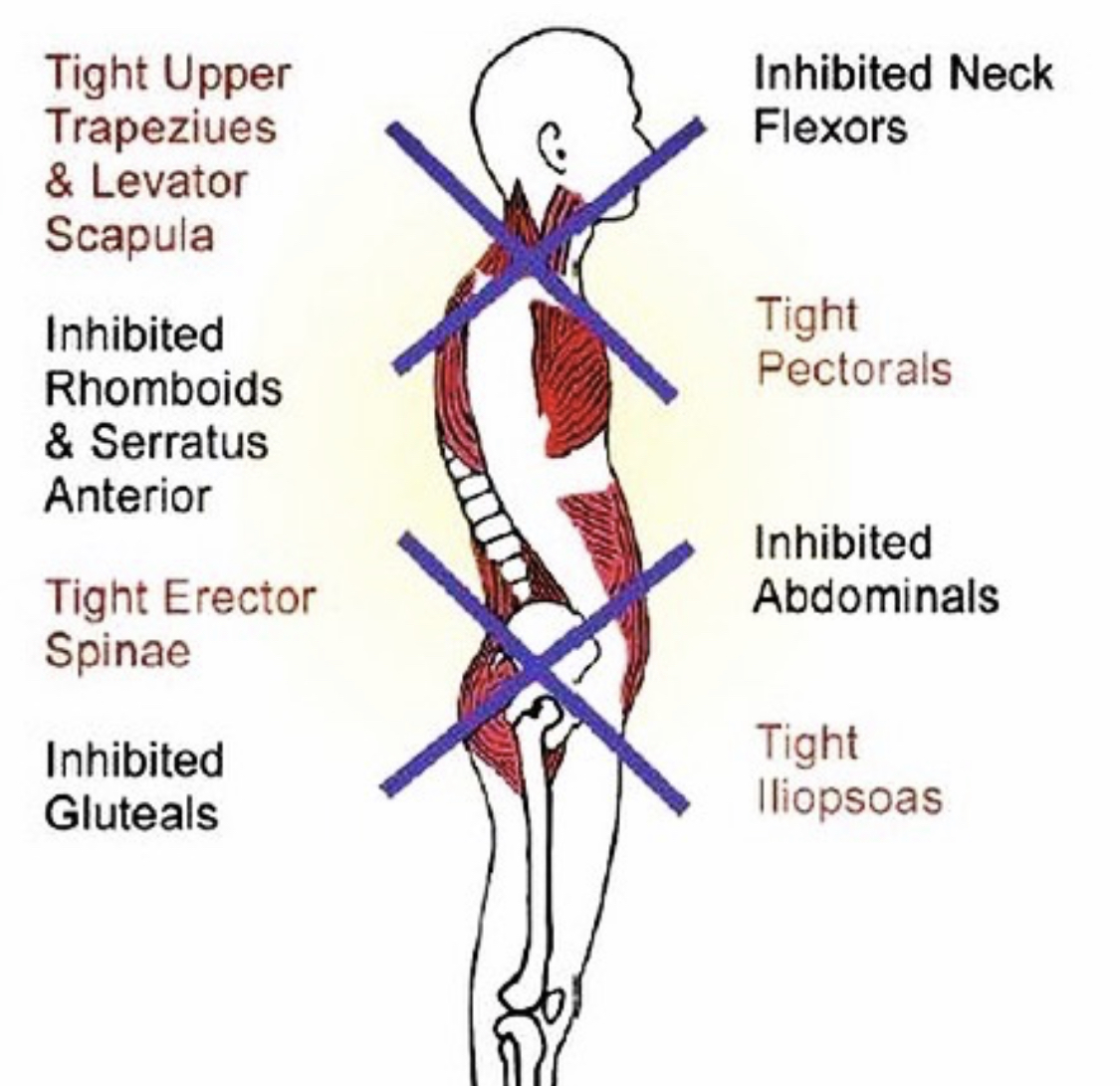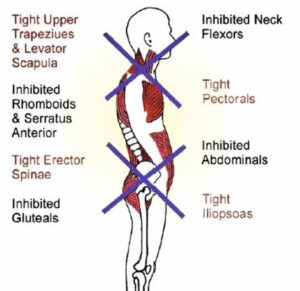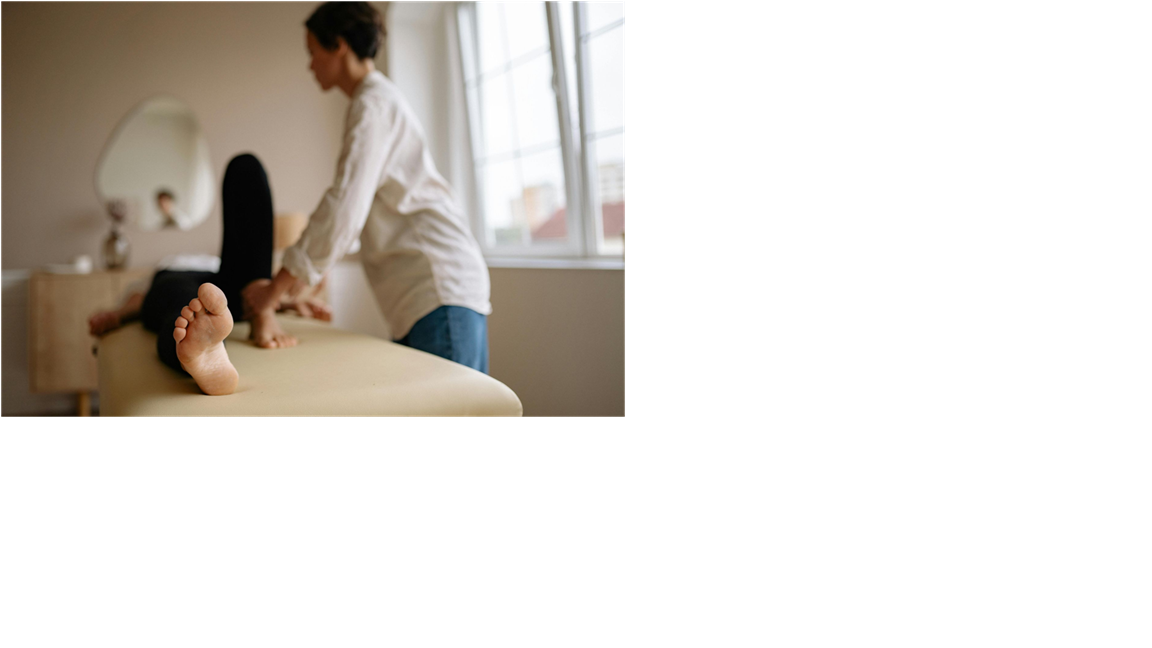Once distinct domains, the fields of fitness, wellness, and clinical healthcare are becoming increasingly intertwined…

Upper Cross Syndrome
Upper cross syndrome (UCS) is a condition that refers to the configuration of the muscle groups in the neck, chest, and shoulders that become deformed mostly brought about by poor posture. The muscles in the upper trapezius and the levator scapula are the most affected as they become extremely strained and overactive. This affects the muscles in the front of the chest, the pectoralis major and the minor muscles, to become tight and shortened.
The overactive muscles cause the surrounding muscles lower shoulders (lower trapezius and the serratus anterior rhomboids major and minor) and the neck (the cervical flexor muscles) to be rendered underactive and weakened. This weakness in the muscles causes a pattern of imbalance which in return causes the joints to dysfunction in articulation. Some of the joints that are affected as a result include the atlanto-occipital joint, cervicothoracic joint, glenohumeral joint, and between C4-C5, and T4-T5. This functional imbalance of the muscle affects the surrounding vertebrae that are forced to change in morphology. The functional approach used by chiropractic practitioner focuses on musculoskeletal structures such as cuff tendonitis or ligamentous components.

UCS is mostly caused by adaptive poor posture especially standing or sitting for prolonged periods normally with the head pushed forward as in the case of using a computer, watching, driving, or even reading. UCS can be easily treated by continued chiropractic adjustments by flexion and relaxation of the tight suboccipital muscles, the upper trapezius and levator scapulae muscles. The importance of chiropractic adjustment is to realign the joints and the skeletal structure by stretching and relaxation of the tight and shortened muscles. This can effectively correct the syndrome and allows for improved posture and better performance bringing more comfort to patients.
When you come to see Dr. Sudeep Chawla at Chawla Chiropractic, he will be able to assess the structural bony components as well as the functional muscular components that are out of place. As a Chiropractor, it is important to focus on both in order to help fix this syndrome. Feel free to check out our Malden, MA facility and don’t forget that Dr. Chawla is only one text message or phone call away from your next appointment.




